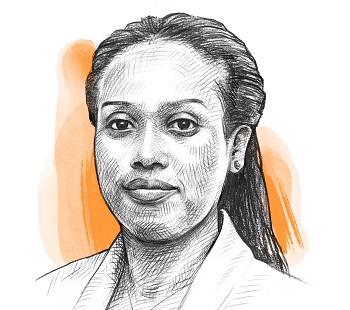RESOH LABO
Objective
-
€8mBUDGET
-
18/01/2022PROJECT START
-
48 monthsDURATION
The Democratic Republic of the Congo (DRC) has a very weak public health system. It has been in a state of insecurity for 20 years and is subjected to natural disasters (volcano, earthquakes) and large movements of refugee populations. It has a poor health and social situation, marked by recurrent epidemics (including the Ebola epidemics) and by a very high level of gender-based violence.
In this context, the Franco-Congolese roadmap to combat epidemics, signed in November 2019, has identified priority actions to increase access to healthcare and prevent and manage risks of epidemics.
RESOH-LABO – Laboratories and One Health Epidemiological Surveillance Network
The RESOH-LABO project was created to increase access to healthcare for the population in DRC while specifically taking into account the aspects related to gender and human rights.
It is based on three main lines of action:
I. Strengthen the biomedical laboratory system (availability, quality and access, particularly for women) and improve the place and role of women in the management and organisation of these laboratories in order to improve patient care
II. Strengthen the organisation and management of epidemiological surveillance and the response, as well as the coordination between the laboratory services (human, animal and environmental health) and make the South-Kivu province part of a national surveillance network, developing a gender sensitivity and involving women’s organisations in the design and management of surveillance systems. This will make it possible to establish a more responsive and relevant management of epidemic alerts
III. Develop a body of knowledge, practices and evaluation on gender issues and epidemiological surveillance / health security; disseminate them to enrich the public policy debate on these issues, and implement them according to a Gender Action Plan in order to make explicit the gender discrimination and take it into account in strategies
This project reflects a vision aimed at reducing gender inequalities in healthcare and strengthening health security for populations. It argues that any measure that does not aim to correct inequalities, particularly gender inequalities, only makes them worse.
Our operational strategy
The operation will aim to gradually structure a Provincial Public Health Laboratory, so as to strengthen the laboratory services in South Kivu Province for disease monitoring and epidemiological surveillance. It will also contribute to increase the effectiveness of risk management and response strategies by seriously taking into consideration the situation of women regarding risks of infection and their roles in epidemiological surveillance.
Expertise France’s implementing partner will be the French National Research Institute for Sustainable Development (IRD), as well as the operators in the Congolese health system, including the Provincial Health Department of South Kivu, the National Institute of Biomedical Research (INRB), Panzi Hospital, the provincial hospital, the general hospitals in the Health Zones, and the Bukavu Faculty of Medicine.
The project will be implemented in partnership with the Global Fund under the partnership agreement signed between AFD and the Global Fund in 2019. The Global Fund’s contributions will specifically target Component 1 (provision of inputs and biomedical equipment).
Integrating the gender issue and a One Health approach
In the context of South Kivu, and even more so in light of the Covid-19 crisis, it is necessary to address the health security issues in a holistic manner and take into account the multiple determinants.
The project’s overall strategy builds on two assertions which form the basis of One Health approaches:
1. It is no longer possible to separate prevention / epidemic management and patient care.
2. In relation to climate change, the interactions between human, animal and environmental health are mutually reinforced and contribute to the emergence of new risks in terms of health security, which deepens inequalities, including gender inequalities.
The ethics of the project are thereby based on the fact that gender issues are neglected, whereas they must be engrained in public health policies. This is particularly the case for epidemiological surveillance and disease control, as gender inequalities constitute a specific serious risk for women and a systemic risk in the emergence and spread of epidemics.
Inter-State cooperation
By targeting South Kivu, the RESOH-LABO project is at the heart of the management of zoonotic and pandemic risks. It also contributes to strengthen local non-State actors, such as the Panzi Foundation and Panzi Hospital, the School of Public Health of the University of Bukavu, and the 15 or so hospitals in South Kivu Province.
The project is part of the Franco-Congolese roadmap to fight Ebola and other epidemics, signed in 2019 by the French and Congolese Presidents, as well as the Health in Common Initiative implemented by AFD in response to the Covid-19 crisis.
 Find out more about the "Covid-19 - Health in Common" Initiative
Find out more about the "Covid-19 - Health in Common" Initiative
This project is therefore an example of France’s commitment to invest in global public goods for health, in particular epidemiological surveillance, in order to strengthen the capacity of partner institutions to respond to the health crises of today and prepare to respond to the risks and crises of tomorrow.
Expected outcomes
After the operation, the RESOH-LABO project should have allowed us to reach the following results:
• Women are included in the governance of laboratories and surveillance systems
• Access to high-quality biomedical tests is improved, in particular for women
• The surveillance system is strengthened and responsive with a One Health strategy; the integration of gender data makes it possible to organise a more targeted and socially relevant response
• The combined biomedical and socio-anthropological knowledge of the risks and social determinants of endemic and epidemic diseases is strengthened and used in public policies.


